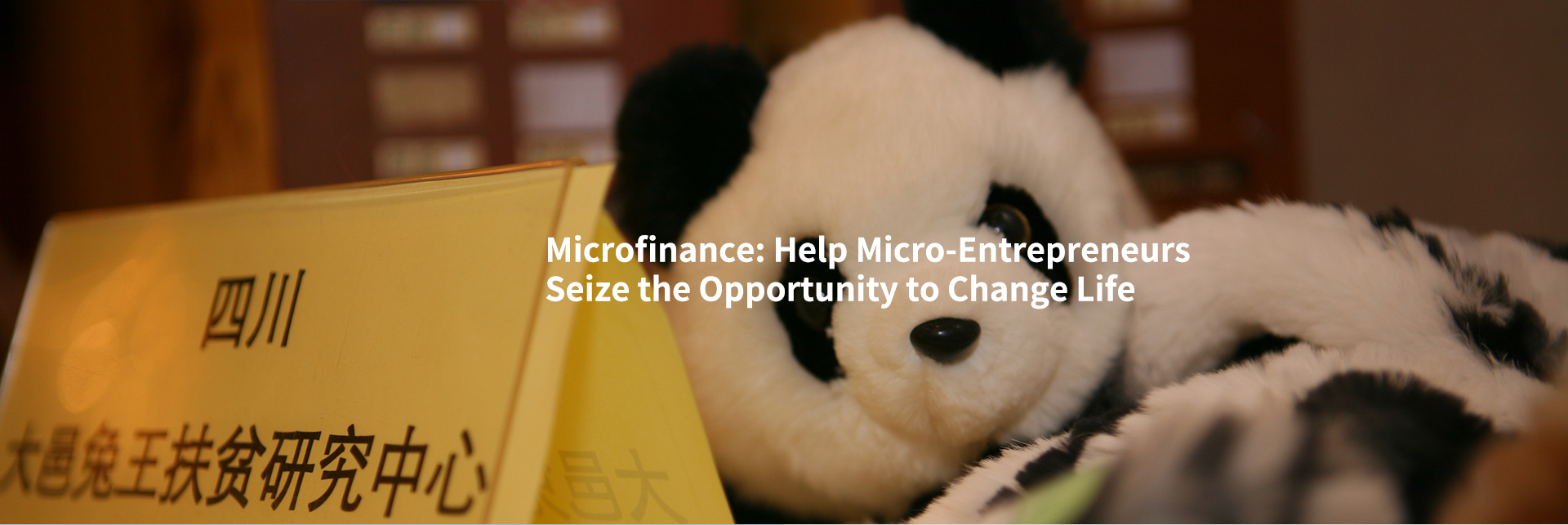
 What Problem Did We Spot?
What Problem Did We Spot?
The low-income population in rural areas not only lack both educational and vocational opportunities, but also opportunities to acquire financial resources, which is one of the obstacles for them to shake off poverty. Many of these individuals master a certain degree of production and management skills, therefore can start a small business, such as opening a restaurant, raising some livestock, or having contracting projects, etc. Such a step would lead to their financial development and have a positive impact on the community as a whole. Yet, because they are poor, this access is generally denied: they possess little or no collateral, lack steady employment and have no traceable credit history. This is a big problem for those who have real skills and hope to develop financially and work for a higher quality of life.
We needed to find a way for the individual who have the ability and ambition but only lack a small mount of money to get the business off the ground and earn a better life.
 Our Solution
Our Solution
In the 1970s, the notion of granting small business loans to those without financial means was first introduced. The Grameen Bank of Bangladesh further developed the model and in 1983 began granting microloans to rural women without requiring collateral. It was an unprecedented success, and in 2006, the bank and its founder, Professor Muhammad Yunus, were jointly awarded the Nobel Peace Prize. In the early 1990s, several non-profit organizations and NGOs began using the microloan model in China.
In 1993, Leping began experimenting with the microloan concept, and later created two companies: Chengdu Dayi Fuping Microcredit Ltd. (Dayi), and Yongji Fuping Microcredit Ltd. (Yongji). We used Fuping to work together with local people, empowering them by giving them skills and knowledge so that they can become professional microloan brokers. At the same time, we provided those who lack financial resources with trust-based loans so that they can open their own businesses, pursue higher education or gain access to medical care. In this way many people have a chance to improve their quality of life and develop economically.
 Empowering the Locals
Empowering the Locals  Real Microcredit:
Real Microcredit: After 10 years of exploration, Dayi and Yongji have successfully transformed from nonprofit projects to commercial financial institutes, which is quite rare. Witnessing the localization of microcredit concept, we increasingly believe in patience, prioritizing social benefits, and relying on the locals to cultivate the market. As of 2016, we have granted 16,600 microloans benefitting 7,500 rural households. Sixty percent of these loans have gone toward the creation of over 4,000 businesses.
Ever since the birth of the concept of microcredit, controversies surrounding it have never stopped. This type of business does encounter many difficulties in practice. Facing China’s complicated society and cultural traditions, we are also looking for a road to continue down on. We are always thinking: how can we promote those who we lend to to more effectively use their money? How can we develop a systematic training system to train the locals? In the future, we will continue to find ways to reduce costs at a large scale, as well as revolutionize the current risk management system, so to strive for a more complete and healthy risk management system and to achieve sustainability financially. We must take steps to train and create new local talent, so that the concept of microfinance can truly affect the local economy in a positive way. We are not only “teaching a man to fish” but metaphorically establishing an entire local fishing industry.


